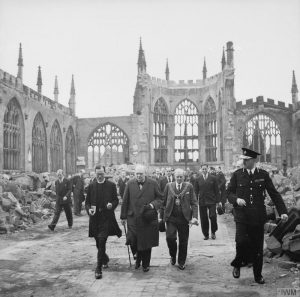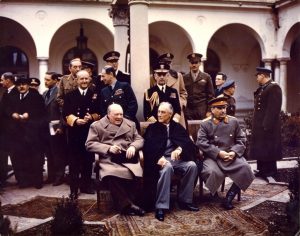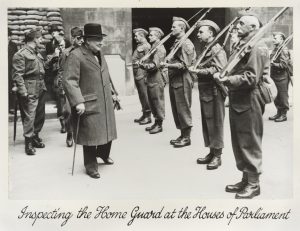
Finest Hour 181
THE FULTON REPORT – “You Know How This Hits Me.” Mary Churchill’s MBE and FDR’s Death
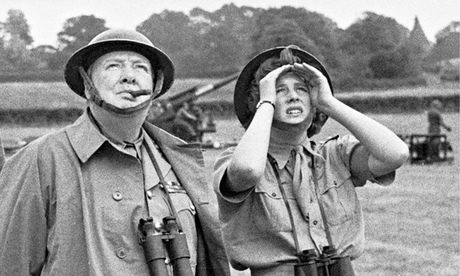
Churchill with Mary
October 28, 2018
Finest Hour 181, Summer 2018
Page 36
By Tim Riley
Timothy Riley is Sandra L. and Monroe E. Trout Director and Chief Curator of the National Churchill Museum
On Tuesday, 10 April 1945, the Allied Forces and Winston Churchill had every reason to be confident that the end of the war was near. It was the beginning of the end of the war in Europe. It marked the day the American Ninth Army captured Hanover, the day Soviet forces entered central Vienna, and it was the day the 8th Air Force set a new single-day record by destroying 245 Luftwaffe aircraft. The road to Berlin was open and ultimate victory at hand.
Churchill’s spirits were high. The day before, the confident Prime Minister told the War Cabinet he hoped the victory celebration, when it ultimately arrived, should be called “VE Day.”1
10 April was also the day the London Gazette, the venerable journal of record of the British Government, published the news that “Junior Commander Mary Spencer Churchill of the Auxiliary Territorial Service” was awarded the MBE. Churchill’s youngest daughter would become a Member of the Most Excellent Order of the British Empire in recognition of her military service.2

2024 International Churchill Conference
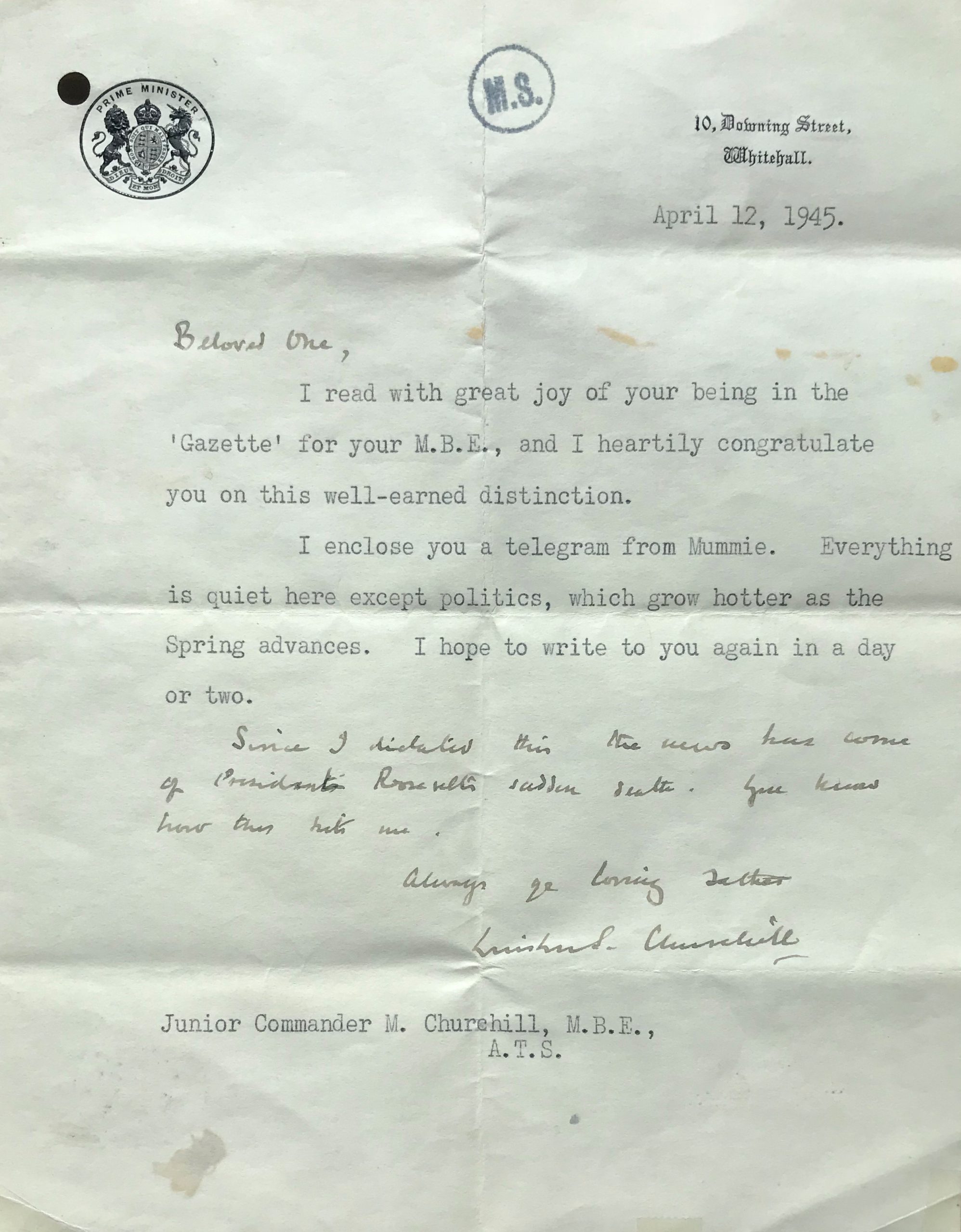
An elated Churchill learned of Mary’s award being published, or “gazetted” as he put it, two days later on 12 April. He immediately telegraphed the news to Clementine Churchill, who was in the Soviet Union in her capacity as chair of the Red Cross Aid to Russia Fund.3 Churchill then wrote a letter to Mary, who was stationed with the Auxiliary Territorial Service 481 Battery anti-aircraft unit in Belgium. The letter is now in the collection of the National Churchill Museum at Westminster College.
Churchill dictated the letter to a secretary, who typed it—double spaced—and put it aside for his signature.
That evening, a Thursday, Churchill went with his old American friend Bernard Baruch to the Savoy Hotel for a meeting of the Other Club. Baruch later described the evening as “a gay occasion with much toasting and bright future beckoning.”4
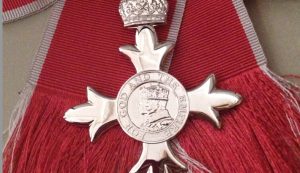
Following dinner, Churchill returned to work, only to learn the tragic news: President Franklin Roosevelt had suffered a cerebral hemorrhage and died suddenly in Warm Springs, Georgia.
Churchill returned to the typewritten letter to Mary still awaiting his signature and wrote in the greeting “Beloved One.” He then he added a note at the bottom of the page:
“Since I dictated this the news has come of President Roosevelt’s sudden death. You know how this hits me. Always yr loving father Winston S. Churchill”
On Friday morning, Churchill wrote telegrams of condolence to Eleanor Roosevelt, Harry Hopkins, and the new President of the United States Harry Truman. This note to Mary, however, is the first expression of Churchill’s immediate and profound grief at the loss of one of his— and his nation’s—greatest friends.
Endnotes
1. Martin Gilbert, Winston S. Churchill Vol. VII, Road to Victory (Boston: Houghton Mifflin, 1986), p. 1287.
2. The Sixth Supplement to The London Gazette, 10 April 1945.
3. Gilbert, p. 1291.
4. Bernard Baruch, Baruch: The Public Years (New York: Holt, Rinehart and Winston, 1960), p. 352.
Subscribe
WANT MORE?
Get the Churchill Bulletin delivered to your inbox once a month.
